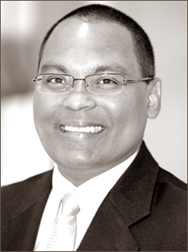|
Counter the vicious LTTE lobby:
Dismantling LTTE international network vital - Prof. Rohan Gunaratna
|

Prof. Rohan Gunaratna
|
International Terrorism Expert Prof. Rohan Gunaratna was
interviewed by Sunday Observer staffer Manjula Fernando while he was in
Sri Lanka recently.
Prof. Gunaratna spoke on the Sri Lanka's post Prabhakaran strategy.
Q: The Government was successful in dismantling the LTTE military
wing and killing all its important leaders. The LTTE post-Prabhakaran
leader KP was also apprehended in a very successful intelligence
operation. Can we say the LTTE is in decline?
A: Within the territorial borders and waters of Sri Lanka the LTTE
has been entirely dismantled. However the LTTE propaganda fund raising,
procurement and shipping organisation is active overseas.
LTTE International still poses a threat to the country as its lobbies
Western Governments not to give aid and assistance to Sri Lanka. As a
result the Government is facing a monumental challenge in its ambition
to develop the North and the East. It is imperative for the Sri Lankan
Foreign Ministry to work closely with the police intelligence, security
and information ministries to counter the vicious LTTE lobby and
propaganda network. If Government is unable to rise to this challenge
Sri Lanka will suffer economically, politically and diplomatically.
Q: Are you satisfied with the Government's Post-Prabhakaran Strategy?
A: The Government should develop a post Prabhakaran and national and
international strategy. The post-Prabhakaran strategy is to be fought
not with guns and bullets but with laptops and cell phones. And by
influencing the Tamil community in Sri Lanka and overseas.
It should also entail a powerful component to dismantle the LTTE
network overseas.
The Government should give the option to Rudrakumaran, the de-facto
head of LTTE organisation who is living in the US to engage the Sri
Lankan Government or risk rendition. There are other Leaders including
those who are currently managing the fund raising and procurement
network.
Q: How many top rung leaders are there in the LTTE international wing
which poses a threat to Sri Lanka?
A: Internationally, the LTTE has fractured into three wings. The
intellectual wing is headed by Rudrakumaran. The other two leaders are,
Oslo based Nediyawan a.k.a Perinpanayagam Sivaparan and Ayyiah a.k.a
Ponniah Nadarajah who is in the most wanted list as he was involved in
the illegal procurement of weapons and ships which led to the death of
several tens of thousands of civilians and soldiers.
Q: How many second level leaders are there now?
A: With the Government engagement of the Tamil Diaspora, inviting
them to invest in the development of the North and the East, the cry for
separatism and advocacy and support for violence will diminish.
Most Tamils both in Sri Lanka and overseas today regard Prabhakaran
as a failure and his project to create a monoethnic state as a day
dream.
With this the spirit to fight and desire to support the LTTE will
wane away and many of these second tiers are likely to dissent the LTTE
movement and look after themselves and their families.
Firstly the Government should understand that the human terrain is
the key.
Whoever that influences the population will win the fight. The
Government must engage the Tamil community in the North and the East in
a sustained way and reach out to them.
The Government has built a strategy to release the IDPs that is now
working. It is a huge task and it is being managed well despite
unreasonable criticism from a few individuals and organisations.
The Government is also formulating a rehabilitation program to
rehabilitate LTTE detainees. There should be greater attention paid to
development in the North and the East from agriculture to industry and
technology.
As such the Government should work closely with the International
community especially the US, the European Union and the Far East to
bring both funds and transfer expertise.
Q: A group of LTTE figures met in Oslo recently. What was their
mission? Was it successful?
A: They want to create a transnational government. The Sri Lankan
Government should pro-actively prevent this. It needs to build a post-Prabhakaran
vision, strategy and an organisation to operate both in Sri Lanka and
overseas. We should not live in the past. This is the need of the hour.
|

